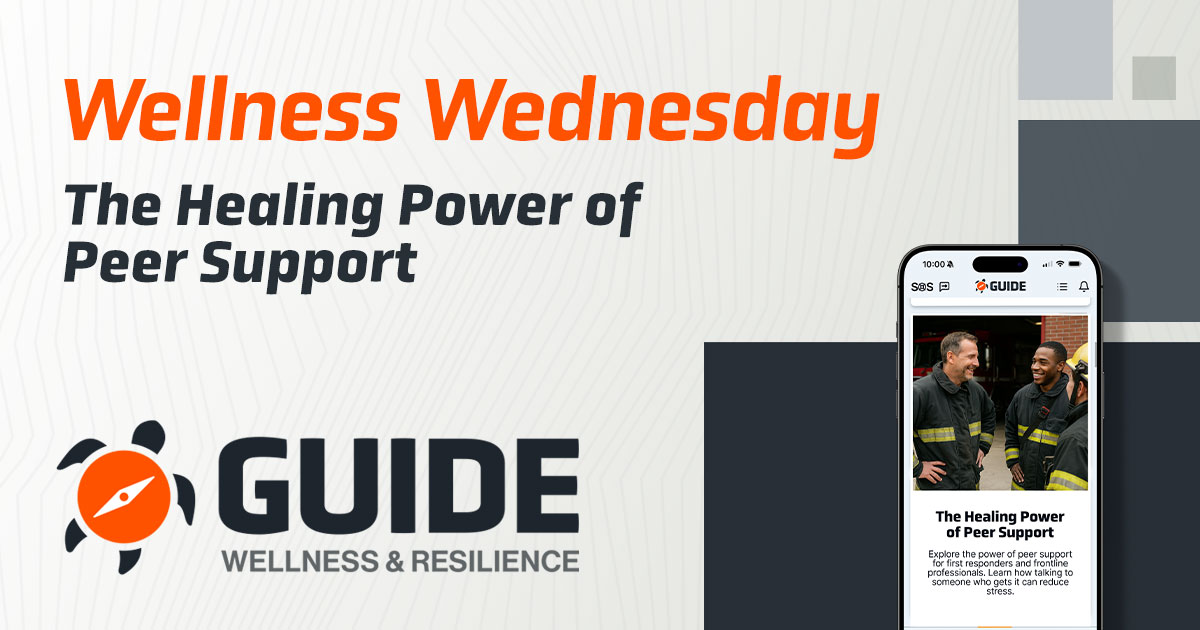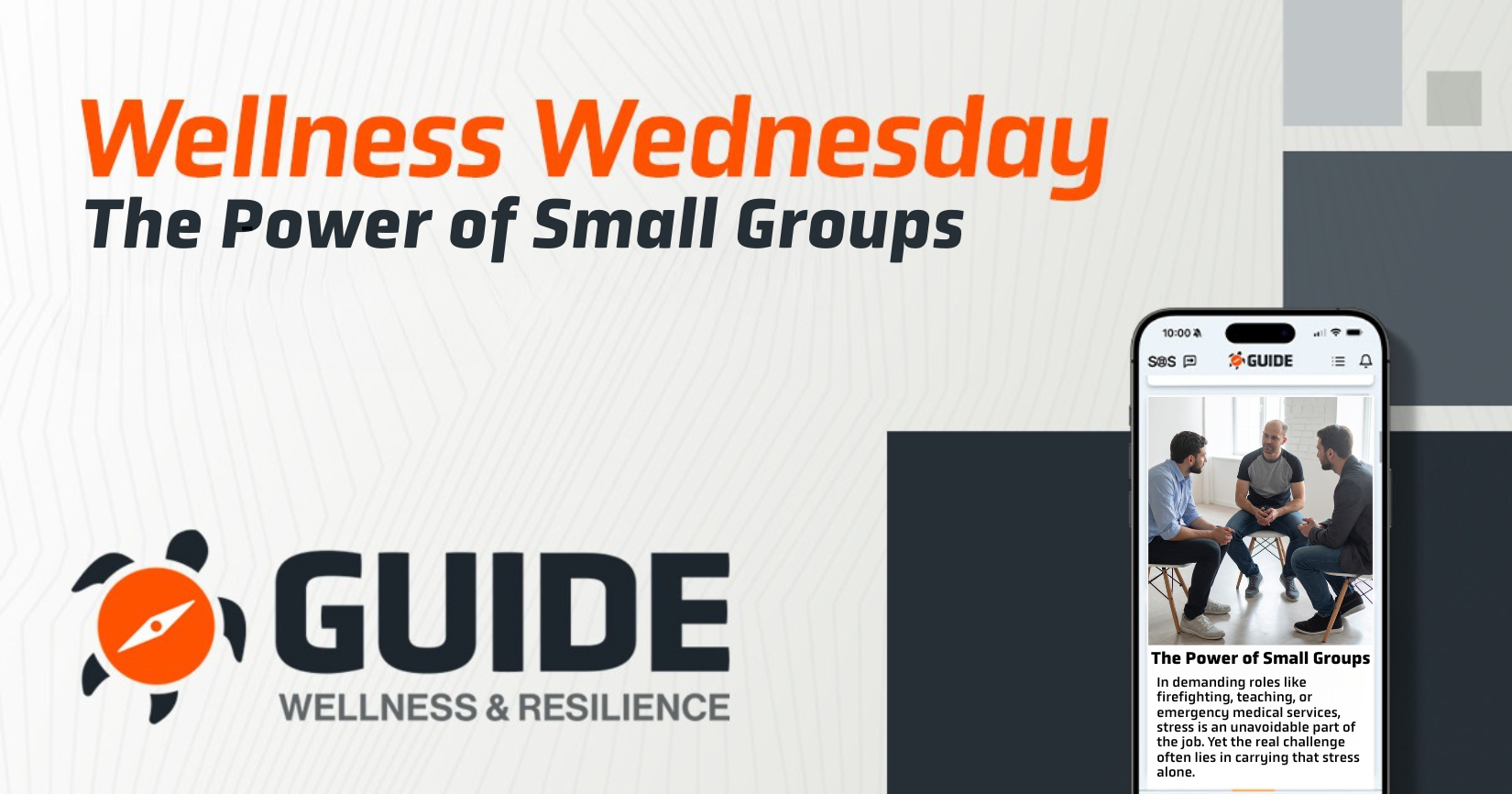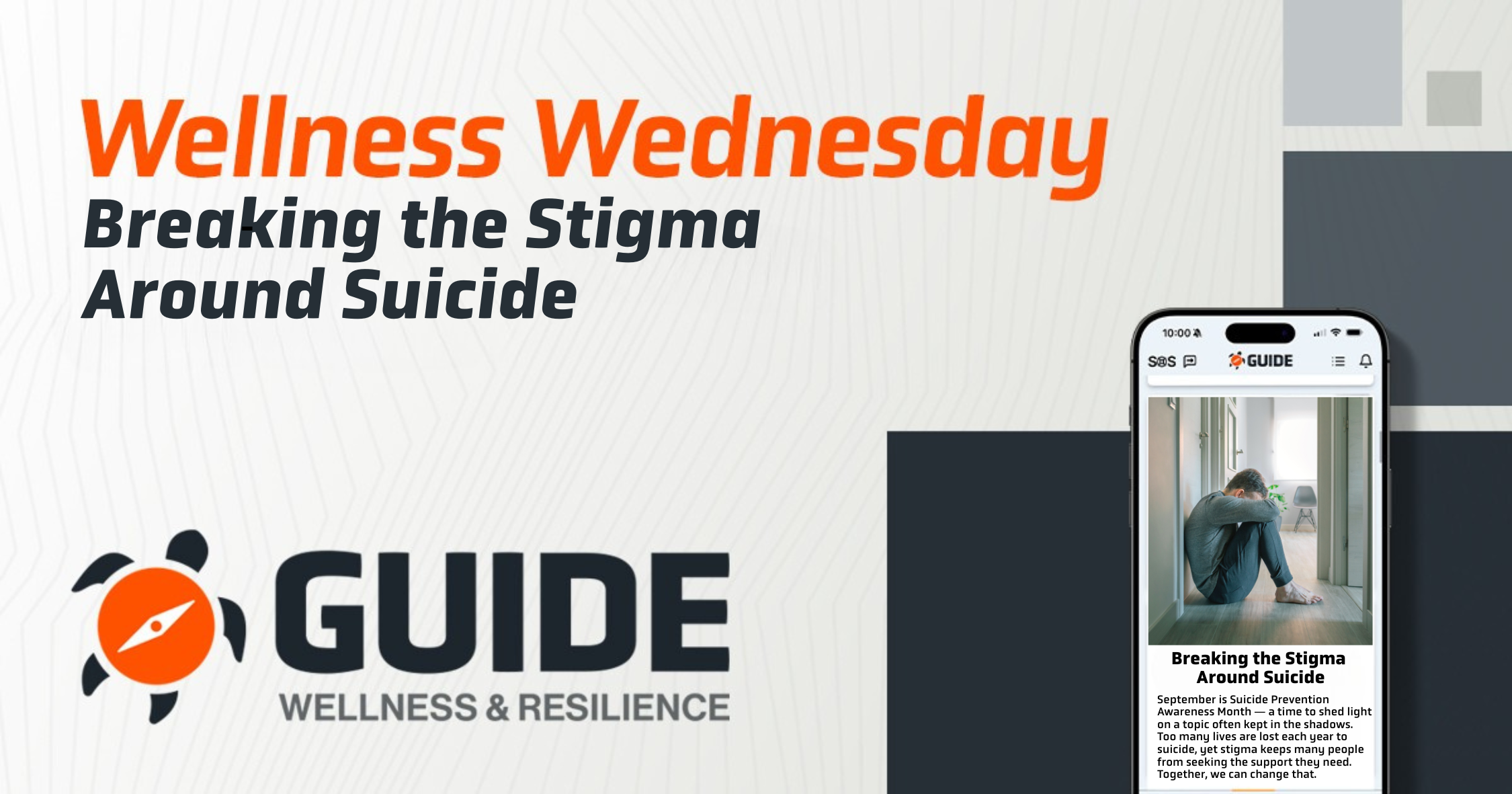There’s something powerful about talking to someone who gets it. Someone who’s stood where you’re standing. Someone who’s felt what you’re feeling. Someone who doesn’t need a full explanation—because they already know.
That’s the heart of peer support.
In high-stress, high-stakes jobs like law enforcement, firefighting, EMS, dispatch, and military service, peer support is more than a feel-good phrase—it’s a lifeline. It’s real people helping each other get through real things. And it’s one of the most effective tools we have for healing, resilience, and long-term mental wellness.
This Wellness Wednesday, we’re exploring the healing power of peer support—why it works, how it helps, and how to make it part of your life on and off the job.
What Is Peer Support?
Peer support is when people with shared experiences come together to offer emotional, practical, or social help. It’s not therapy. It’s not counseling. It’s a connection between equals.
In the world of first responders and frontline professionals, peer support can look like:
- A trusted teammate checking in after a hard call
- A veteran officer mentoring a new recruit
- A quiet conversation in the squad room, hallway, or break area
- A formal peer support program through your agency or department
At its core, peer support is about being seen, heard, and supported by someone who understands your world.
Why Peer Support Matters for First Responders
You see things most people don’t. You deal with trauma, stress, and pressure that many can’t imagine. While outsiders may try to understand, there’s a special kind of healing that comes from someone who’s been there too.
Peer support helps because it:
✅ Reduces isolation and stigma
✅ Encourages early intervention for stress and burnout
✅ Builds trust and emotional safety
✅ Increases mental health awareness
✅ Strengthens teams and department culture
It reminds you: You’re not alone. And that reminder can make all the difference.
The Mental Health Benefits of Peer Support
You don’t need a clinical diagnosis to benefit from peer support. Whether you’re coping with a difficult call, managing long-term stress, or just feeling off, peer connection provides:
1. Emotional Validation
Sometimes you don’t need advice—you just need someone to say, “I’ve felt that too.” That kind of validation eases emotional tension and gives you space to process.
2. Stress Relief
Talking to someone who understands what you’ve experienced can help you release stress in a safe, controlled way—before it turns into something bigger.
3. Encouragement to Seek Help
If needed, a peer can help guide you toward additional support like therapy, coaching, or resources—without judgment or pressure.
4. Stronger Coping Skills
Hearing how others have gotten through hard times can give you new tools to handle your own challenges.
5. Increased Hope and Resilience
Sometimes knowing that someone else has come through the other side of something tough gives you the belief that you can too.
What Makes Peer Support So Powerful?
There’s science behind it. Studies show that peer support increases emotional well-being and helps prevent mental health issues. That’s because it taps into some key human needs:
- Connection – Humans are wired for social support
- Belonging – Knowing you’re part of something bigger strengthens identity
- Understanding – Shared experiences create faster trust
- Empowerment – Peer support encourages taking action for your own health
It’s not about fixing others. It’s about walking beside them—and letting them walk beside you.
How to Be a Supportive Peer
You don’t need training or a perfect plan to support someone. You just need to show up with empathy, respect, and a willingness to listen.
Here’s how you can offer peer support in everyday ways:
🔹 Be Present
Put your phone down. Make eye contact. Give them your full attention—even if it’s just for a few minutes.
🔹 Listen Without Trying to “Fix”
You don’t need to offer solutions. Just listen. Sometimes being heard is the solution.
🔹 Ask Open-Ended Questions
Instead of “Are you okay?” try:
- “What’s been on your mind lately?”
- “Want to talk about that call earlier?”
- “How have you been holding up this week?”
🔹 Respect Their Pace
Not everyone opens up right away. That’s okay. Your steady presence speaks volumes.
🔹 Share, Don’t Overshadow
If you’re comfortable, share a personal experience—but keep the focus on them, not you.
🔹 Follow Up
Check back in. A simple “Thinking about you” message goes a long way.
How to Find Peer Support If You Need It
If you’re struggling or just want to feel more connected, you don’t have to wait for someone else to notice. You can reach out first.
👥 Start with your circle
Think of someone you trust on your team or in your department. It could be a coworker, supervisor, or a longtime friend.
🧰 Use department resources
Many agencies offer formal peer support programs or wellness teams. These are often led by trained peers who know what you’re going through.
📱 Use digital communities
Apps like the GUIDE App and other peer-support platforms offer anonymous, supportive spaces to connect with others who understand your world.
🗣 Say something simple
You don’t need the perfect words. Try:
- “Mind if I run something by you?”
- “I’ve been having a tough time—can I talk to you?”
- “You ever feel like this after a shift?”
Opening the door is the hardest part. But most of the time, people will step through with open arms.
Breaking the Stigma Around Reaching Out
For a long time, there’s been a myth that talking about stress makes you weak. But the truth is: talking about it makes you stronger.
You don’t have to be falling apart to ask for support. You can simply be tired, overwhelmed, or unsure. That’s human.
And the more we normalize those conversations, the more lives we protect—not just from burnout, but from things like depression, substance misuse, and suicide.
Let’s start changing the culture. Let’s start showing up for each other—before things fall apart.
What If You’re Not Ready to Talk Yet?
That’s okay, too. Peer support doesn’t always mean pouring your heart out.
You can start small:
- Spend time with teammates who lift you up
- Listen to others’ stories without pressure to share your own
- Let someone know you’re not okay—even if you don’t want to explain everything
There’s no timeline. The important part is knowing you’re not alone—and you don’t have to do this by yourself.
Final Thoughts
You signed up to protect others. But that doesn’t mean you have to carry everything alone. Peer support is one of the strongest forms of protection we have—for each other and for ourselves.
It doesn’t take a hero to offer support. It takes a human. A teammate. A friend.
So whether you need to talk, or someone needs you to listen—make the space. Lean in. Reach out. Check in. And remember:
Healing happens faster when we do it together.




